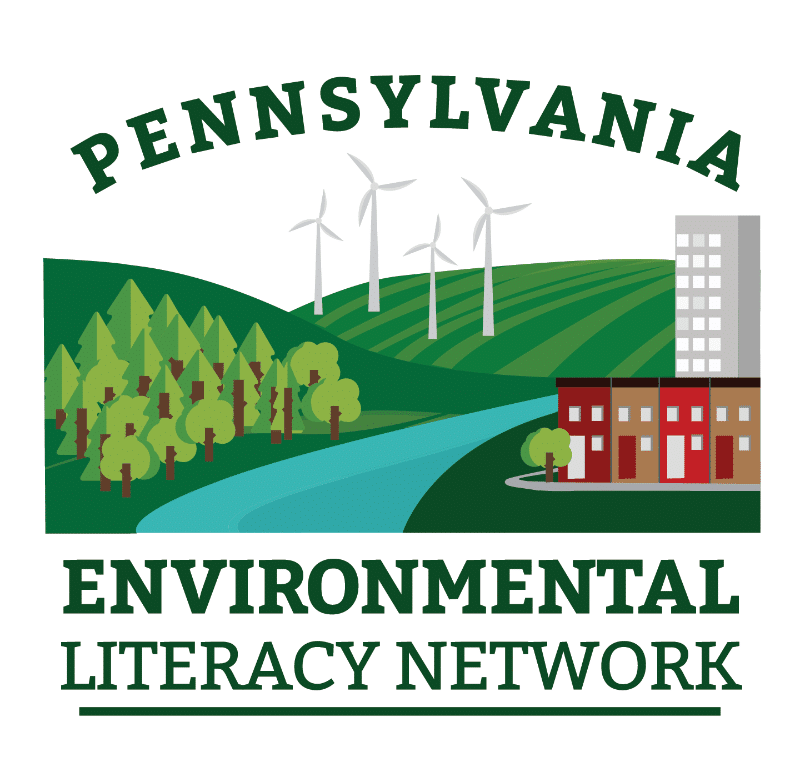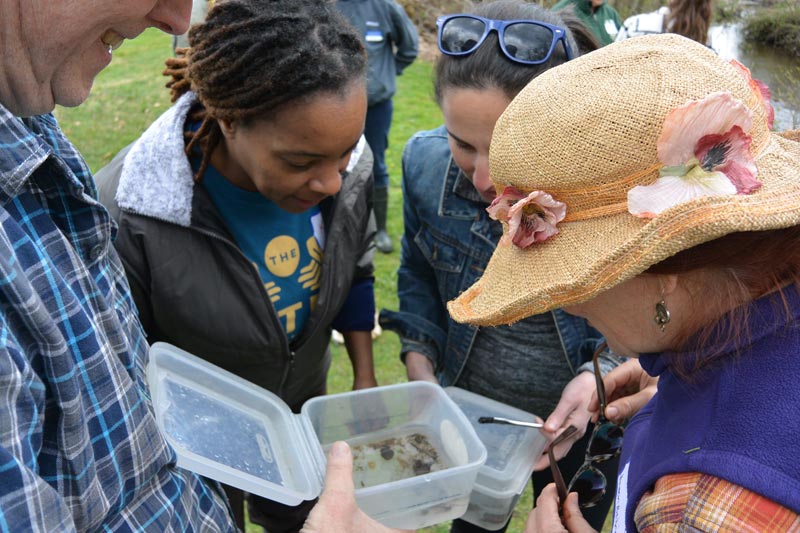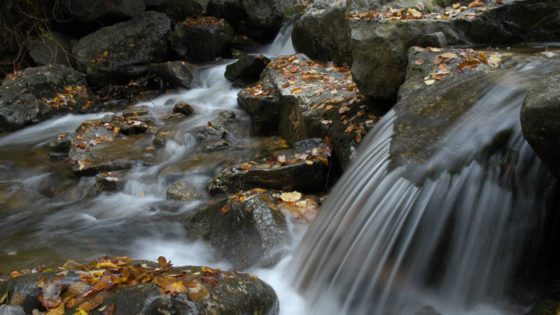
Environmental educators have a new way to access professional development and resources to prepare them for the new Science, Technology and Engineering, Environmental Literacy, and Sustainability (STEELS) Standards. The Pennsylvania Environmental Literacy (PA ELIT) Network has launched six regional hubs, marking a significant milestone as Pennsylvania public schools prepare to transition to the new standards by the 2025–2026 school year.
The PA ELIT Network consists of representatives from government agencies, nonprofits like Stroud Water Research Center, and schools working together to increase environmental literacy, a key component of the new standards.
As the saying goes, it takes a village. By bringing together partners from various areas of environmental education, we were able to build these regional hubs that will be a vital resource for educators.
Watershed Education Trainings
Through the hubs, educators can access professional development that will prepare them to create Meaningful Watershed Educational Experiences (MWEEs) in accordance with the new standards. Certified MWEE Facilitators will lead the professional development events in person and over Zoom. Events include MWEE Ambassador and MWEE Educator trainings, as well as guidance on all four of the essential elements of MWEEs. The essential elements, which describe what students do, are environmental issue definition, outdoor field experiences, synthesis and conclusions, and environmental action projects.
PA ELIT regional hub leaders, regional directors of the Pennsylvania Association of Environmental Educators (PAEE), and nearly 500 environmental education providers in Pennsylvania can be found on the PAEE website at Find EE Near Me. Starting this summer, Pennsylvania Gateway to Green, the online home of the PA ELIT Network, will have an events calendar for ELIT regional hub gatherings.

Resources and Opportunities
- For the latest updates and teaching resources, visit Pennsylvania Gateway to Green, the Pa. Association of Environmental Educators, and the Pa. Department of Education’s STEELS Hub.
- For MWEE resources, visit the MWEE page of Pennsylvania Gateway to Green and Bay Backpack.
- For opportunities at the Stroud Center, visit the Professional Development and Training page.

